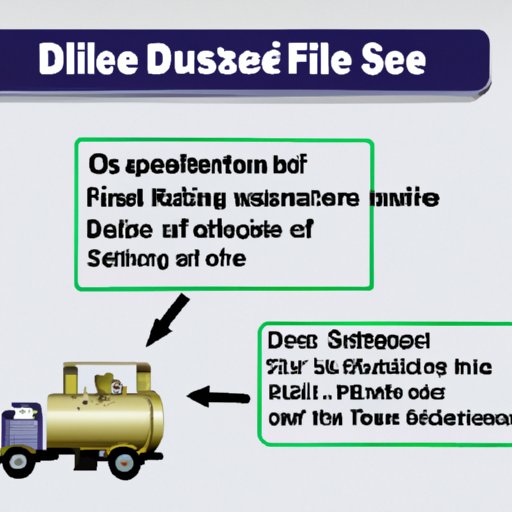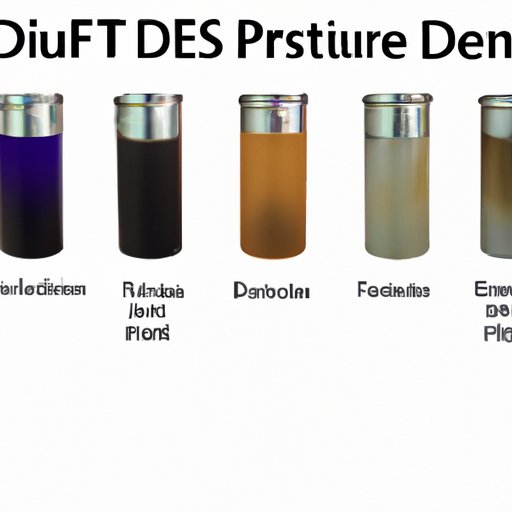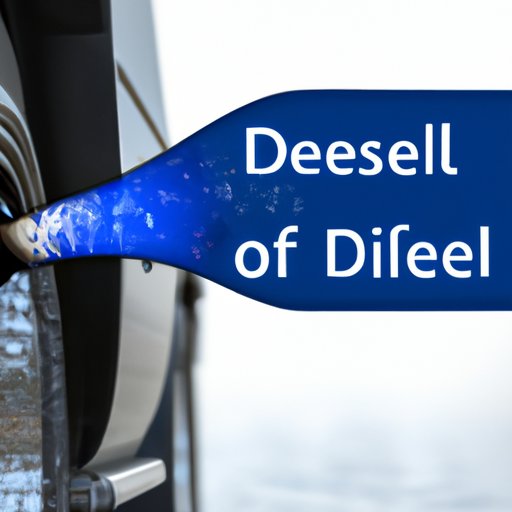Introduction
Diesel exhaust fluid (DEF) is a liquid additive used to reduce emissions in diesel engines. It is composed of purified water and 32.5% urea and is sprayed into the exhaust stream of a diesel engine to reduce the amount of nitrogen oxide (NOx) produced during the combustion process. In recent years, governments around the world have implemented stricter regulations on diesel emissions as part of their efforts to protect air quality and public health. As a result, the use of DEF has become increasingly common in order to comply with these regulations.
Chemistry Behind Diesel Exhaust Fluid and How It Works
DEF is composed of two simple components: purified water and urea. Urea is a compound derived from ammonia and is a natural byproduct of the metabolic processes of many animals, including humans. When mixed with water, the urea forms a weak solution known as aqueous urea. This solution is then injected into the exhaust stream of a diesel engine, where it breaks down into ammonia and carbon dioxide. The ammonia then reacts with the NOx in the exhaust gases, reducing the overall levels of NOx emitted from the engine.
The chemical reaction that occurs when DEF is injected into the exhaust stream is known as selective catalytic reduction (SCR). During the SCR process, the ammonia produced by the breakdown of urea reacts with the NOx in the exhaust gases and converts them into harmless nitrogen and water vapor. This drastically reduces the amount of NOx released into the atmosphere, helping to improve air quality and public health.
Benefits of Using Diesel Exhaust Fluid
In addition to reducing emissions, there are several other benefits associated with using DEF. For example, using DEF can lead to improved fuel economy due to the reduced amount of emissions being produced. This results in less fuel being burned and more energy being conserved. Additionally, using DEF can help to enhance engine performance since fewer pollutants are being released into the environment.
Another benefit of using DEF is that it can reduce the amount of maintenance required for a diesel engine. By reducing the amount of pollutants in the exhaust gases, DEF helps to keep the engine clean and free of buildup. This can lead to fewer repairs and longer engine life.

Safety Considerations for Working with Diesel Exhaust Fluid
When working with DEF, it is important to take proper safety precautions. DEF should be stored in a cool, dry place and handled with care. Gloves and other protective gear should be worn when handling DEF to avoid skin irritation or burns. Additionally, DEF should never be ingested and should not come into contact with eyes or any other sensitive areas.
Role of Diesel Exhaust Fluid in After-Treatment of Exhaust Gases
After the exhaust gases have passed through the engine, they must undergo an additional treatment process known as after-treatment. This process further reduces the amount of pollutants released into the environment and helps to meet government regulations. During this process, DEF is injected into the exhaust stream and helps to break down the remaining NOx molecules. This process is essential for ensuring that diesel engines meet the required emissions standards.

Environmental Impact of Diesel Exhaust Fluid
The use of DEF has both positive and negative impacts on the environment. On the one hand, it helps to reduce the amount of NOx being released into the atmosphere, which can lead to improved air quality. On the other hand, urea can be toxic to aquatic organisms if it enters surface or ground water sources. Therefore, it is important to ensure that DEF is properly stored and disposed of to prevent any contamination of water sources.

Comparison of Diesel Exhaust Fluid to Other Exhaust Treatment Solutions
While DEF is the most common solution for reducing diesel emissions, there are other options available. These include diesel oxidation catalysts (DOCs), diesel particulate filters (DPFs), and exhaust gas recirculation (EGR) systems. Each of these solutions has its own advantages and disadvantages, and some may be better suited for certain applications than others. Additionally, the cost of these solutions can vary significantly, so it is important to compare different options before making a final decision.
Conclusion
Diesel exhaust fluid is a liquid additive used to reduce emissions from diesel engines. It is composed of purified water and urea and is injected into the exhaust stream, where it breaks down into ammonia and carbon dioxide. This reaction helps to reduce the amount of NOx in the exhaust gases, leading to improved fuel economy and engine performance. Additionally, DEF can help to reduce the amount of maintenance required for a diesel engine and can help to meet government regulations on emissions. While DEF has many benefits, it is important to take proper safety precautions when working with it and to ensure that it is properly stored and disposed of to avoid any contamination of water sources.
Overall, diesel exhaust fluid is a viable solution for reducing diesel emissions and can provide numerous benefits for diesel engine owners. By understanding how DEF works and the potential environmental impacts of using it, you can make an informed decision about the best exhaust treatment solution for your needs.
(Note: Is this article not meeting your expectations? Do you have knowledge or insights to share? Unlock new opportunities and expand your reach by joining our authors team. Click Registration to join us and share your expertise with our readers.)
